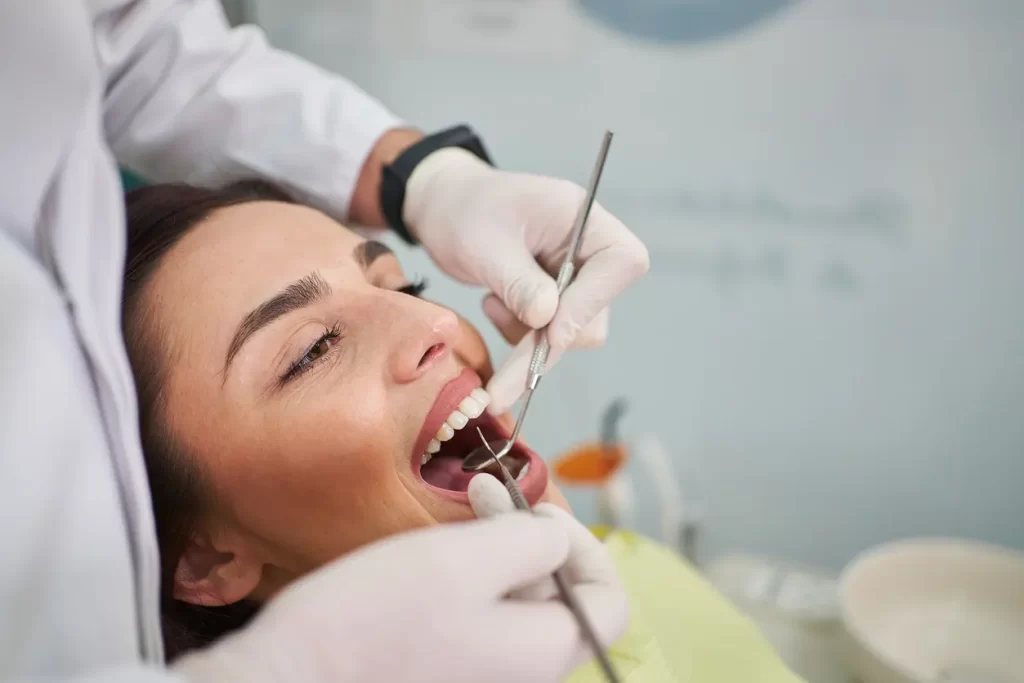The Genetic Link
Several studies have suggested a genetic component in the development of gum disease. This connection isn’t surprising, as genetics play a role in many aspects of health. In the case of gum disease, specific genetic variations may increase one’s susceptibility to the condition. Some of the key genetic factors include:
- Immune System Response: Your body’s immune response to bacterial infection in the gums may be influenced by your genetic composition.
- Inflammatory Markers: Genetic variations can affect the levels of inflammatory markers in the body. High levels of inflammation are related to an increased risk of gum disease. If your genes code for high inflammation, you might be at a higher risk.
- Tissue Repair: The genes responsible for tissue repair and regeneration can also influence your susceptibility to gum disease. If your genes code for slower or less efficient tissue repair, your gums may not heal as effectively, making you more vulnerable to the disease’s progression.
- Saliva Composition: The composition of your saliva, influenced by genetics, can impact your oral health. Saliva has an important role in washing away food particles and harmful bacteria. Genetic variations may affect the effectiveness of saliva in maintaining a healthy oral environment.
It’s important to note that genetics alone do not determine whether you’ll develop gum disease. Instead, they interact with other risk factors, such as lifestyle choices and oral hygiene practices.
The Role of Lifestyle and Oral Hygiene

While genetics may predispose some individuals to gum disease, environmental and lifestyle factors play a significant role in its development. These factors can either exacerbate or mitigate genetic predisposition. Here are some important lifestyle and oral hygiene practices that can influence your risk of gum disease:
- Proper brushing, flossing, and regular dental check-ups are essential for preventing gum disease. These practices can help remove plaque and tartar, reducing the risk of gum inflammation.
- Smoking or using tobacco products is a high-risk factor for gum disease. It can worsen gum health and hinder the body’s ability to fight infections.
- A diet rich in carbohydrates and acidic foods can increase the chances of gum disease. On the other hand, a balanced diet with plenty of fruits and vegetables can promote oral health.
- Chronic stress can weaken immunity and increase inflammation, potentially making gum disease worse.
- Excessive alcohol consumption can harm oral health. It can lead to dehydration and reduce saliva production, which is essential for maintaining a healthy mouth.
The Takeaway
Gum disease is a complex condition influenced by both genetic and environmental factors. While genetics may increase your susceptibility, it’s essential to remember that you have the power to reduce your risk through healthy lifestyle choices and excellent oral hygiene.
If you have a family history of gum disease, it’s crucial to be cautious about your oral health. Regular dental check-ups and discussions with your dentist about your family history can help in creating a personalized plan to protect your gums. Furthermore, a genetic predisposition to gum disease should motivate you to take extra care of your oral health and consider preventive measures seriously.
In conclusion, while genetics may make you more prone to gum disease, it doesn’t necessarily mean that it’s inevitable. A combination of genetics, lifestyle choices, and oral hygiene practices all play a role in determining your oral health. By understanding this multifaceted relationship, you can take control of your oral health and reduce your risk of gum disease, ensuring a healthy smile for years to come. Remember, it’s not just in your DNA; it’s also in your hands.

